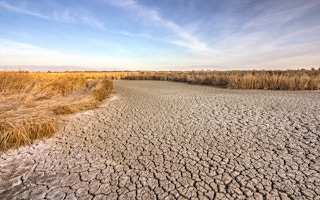Since the very first Earth Day nearly five decades ago, the environmental movement has tackled a wide range of problems, including air pollution, water contamination, deforestation, and biodiversity loss. But this Earth Day, there are two fundamental issues the movement must address over the coming decade if it is ever to defuse the tension between human development and the environment. In fact, these two issues underlie many, if not most, of the world’s environmental challenges.
The food system has significant―but often underappreciated―impacts on the environment as my colleagues and I show in our report, “Creating a Sustainable Food Future.” Take climate.
Nearly a quarter of the world’s annual greenhouse gas emissions are linked to agriculture. About 14 per cent come from livestock, fertiliser use, rice production, and farm-related energy consumption. Another 10 per cent results from the clearing of forests, primarily for agriculture. Such conversion of natural ecosystems into farms and pastures is the number one cause of forest and biodiversity loss.
“
Today, nearly 50 per cent of the planet’s landmass, outside of deserts and permanent ice, is dedicated to growing food.
And then there is the ocean, an essential source of food. More than half the world’s marine surface is being fished, and unsustainable fishing threatens more than 55 per cent of the world’s coral reefs. Moreover, the ocean has been absorbing so much of the carbon dioxide released by fossil fuels over the years that it is becoming too warm and acidic for corals.
The human quest for fuel—or “energy”—has similar wide-scale impacts. For instance, the majority of global greenhouse gas emissions arises from burning fossil fuels. Coal-fired power plants are a leading global source of mercury pollution. The energy sector accounts for about 15 per cent of the world’s freshwater withdrawals. Extraction of fossil fuels impacts biodiversity, especially as remaining reserves are located in more and more remote places.
And oil spills are still with us; the United States alone experienced at least 137 oil spills in 2018.
Food and fuel are critical not only for the global environment but also for the global economy. Although it directly accounts for just 3 per cent of global GDP, agriculture employs more than 2 billion people, more than a quarter of the human population. Accounting for 10 per cent of global GDP, the energy sector employs more than 40 million people. And it ranks as one of the planet’s largest industries in terms of annual revenue.
If the aspirations of Earth Day are ever to be realised, then figuring out how to achieve sustainable food and energy systems—addressing both the production and consumption sides of the equation—will need to be a strong focus of the environmental movement.
Such a focus would directly tackle the underlying causes of most of the world’s environmental challenges, getting beyond putting just a Band-Aid on symptoms. It would ensure environmentalism aligns with human development since little is more basic to human well-being than food and energy. And such a focus would be relevant for all nations since food shortages and fuel shortages can topple governments.











